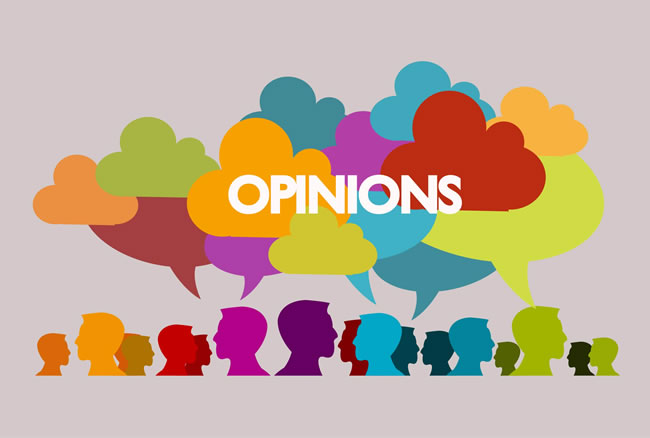IN every human society where there is interaction between opposite sexes, some levels of sexual attraction are expected. Obviously, when this occurs, mutual interest in a reciprocal response is the civilised and socially acceptable behaviour. Howbeit, today, there is the increasing manifestation of social vices that emanate from sexual desires. One of such vices is sexual harassment. It has continued to attract the attention of social commentators and the media as a common phenomenon in the society. This abnormal, antisocial behaviour has been accepted as a norm within the Nigerian system. For the layman, sexual harassment is described as unwanted sexual advances, requests for sexual favours, and other verbal or physical conduct of a sexual nature, when submission or rejection explicitly or implicitly affects a person’s employment or education, unreasonably interferes with a person’s work or educational performance, or creates an intimidating, hostile or offensive working or learning environment.
Such unwelcome sexual advances could include unwanted and unwelcomed words, deeds, actions, gestures, symbols, or behaviours of a sexual nature that make the target feel uncomfortable. Albeit, victim are mostly women, still the victim as well as the harasser may be a woman or a man. The victim does not have to be of the opposite sex. The harasser can famously be the victim‘s supervisor, pedestrian on the street, an agent of the employer, a supervisor in another area, a co-worker, co-student or a generally non-employer. This evil of a sexual harassment may take various forms like gestures, objects, pictures, posters and pinups; verbal: such as derogatory comments, jokes and demands as well as; physical: unwanted touching coerced kissing and others. Sexual harassment is also a glob al issue that has permeated the fabrics of higher education institutions and many workplaces as long as humans have reasons to interact. Sexual harassment in universities and other higher education institutions is not limited to Nigeria and her neighbours.
Sexual harassment is a serious crime with grievous cost to the victims, co-workers and the organisation. This attribute makes sexual harassment in the workplace a much talked about organisational vice outside inherent job factors. Here, the organisational climate may not have aided harassment-free workplace due to many industry related problems which are not unconnected to institutional corruption, uncontrolled abusive relationship between superiors and their subordinates. Many female workers die in silence: they do not report sexual harassment for fear of losing their jobs due to the growing unemployment rate in Nigeria. Sexual harassment leads to loss of job on the part of employees and emotional trauma when it is constantly experienced by a naive employee without being addressed. In some cases, it may lead to organizational anticlimax. These negative antecedents affect the job, the employees as well as the employers and the organisation as a whole and thus makes sexual harassment a contentious issue in the organisation. Hence now, the germane questions are: why is sexual harassment still allowed to flourish in our workplaces and universities? Why are the advantaged allowed to use sexual harassment as an instrument over the poor? Why does sexual harassment happen in our churches? Why do our community leaders killmatters of harassment in the neighbourhoods? Do we understand the extent of the problem? Is there a national appetite to address it? If so, what solutions are available to us to tackle this problem head on? A conversation about harassment, particularly in the work place, is long overdue. Talking about the issue as Nigerians is the catalyst to changing national attitudes and behavior regarding this problem. Not talking about it means burying intolerable behaviour even deeper.
Again, don’t ask me why you should be concerned. Tell me if you don’t have friends or family who feel pressured to sleep with their powerful male bosses as a requirement, people who want a slot for an audition, or a sort of rite of passage to secure their jobs. What about marketers working with commercial banks, who visit customers in the office or even at home and end up trading sexual favours to meet their (often unrealistic) sales targets? Perhaps one reason sexual harassment remains pervasive in our country is that we live in a transactional society. Most people you approach for help or a favour will, in most cases, ask for something in return. If not now, certainly later. There have been many high profile cases of sexual harassment against female students in some of the universities in Nigeria between 2018 and 2020. For instance, there was the popular case of a female student and a male professor in Obafemi Awolowo University, Ile-Ife over sex for grade. Another lecturer was suspended in same university over alleged sexual assault. This, and a lot more cannot be underemphasised.
The Nigerian legal system provides little respite for victims of sexual harassment unlike developed countries where the legal system is more effective. Reported cases of sexual harassment in Nigerian are treated with levity. Even, there’s still no meaningful approved law that hinders the spirit of harassment. For example, rather surprisingly, there is no provision in the Nigerian Labour Act 2004 that prohibits sexual harassment or any other kind of harassment during employment. The closest one finds is a provision in the Employees Compensation Act 2010 which provides for compensation in the case of mental stress to a worker if the mental stress is the result of a sudden and unexpected traumatic event arising out of or in the course of the employee’s employment. Yeah, we know of the Lagos State law that prohibits harassment that implicitly or explicitly affects a person’s employment or educational opportunity or unreasonably interferes with the person’s work or educational performance or creates an intimidating, hostile or offensive learning or working environment. Any person who sexually harasses another in Lagos State is guilty of a crime and is liable to imprisonment for three years. The Senate at its plenary session of Tuesday, 7 July 2020 passed the Sexual Harassment Bill, 2020 (SB 77) which seeks to prevent, prohibit and redress the sexual harassment of students in tertiary educational institutions.
In conclusion, we should have a message for these perpetrators of evil at whatever level of the organization they are in, we should all be ready to call out inappropriate behavior or language witnessed in the work place. If the clamour from both male and female employees who oppose the behaviour rises, one would hope it would have the effect of shaming would-be harassers into checking their behaviour. Let’s protect our sisters from sexual harassment and make the Nigerian community a saner one.
- Ogungbile writes in via thedreamchaser65@gmail.com
YOU SHOULD NOT MISS THESE HEADLINES FROM NIGERIAN TRIBUNE
FALSE! Yoruba Not An Official Language In Brazil
Claim: A national newspaper and multiple online platforms claim Brazil has adopted Yoruba as its official language and that the language would be included in primary and secondary schools curriculum.
Verdict: The claim is false. The content of the article published by these online platforms is not new; it has been recirculated several times and has been debunked.
Viral Voice Note On WhatsApp Billing False
Claim: A viral WhatsApp voice note, purportedly made by the director and CEO of WhatsApp, claims users will have to start paying for WhatsApp services.
Verdict: The viral WhatsApp voice note claim is a hoax. The content is not new and has been circulated as a broadcast message several times in the past.
Marburg Virus: What You Need To Know About Disease Recently Detected In West Africa
On Monday, August 9, 2021, the World Health Organisation (WHO) confirmed the first case of Marburg virus in West Africa in Guinea. This development has sent shivers down the spines of West Africans who are still grappling with the effects of the coronavirus pandemic. But before this dreaded disease is greeted by rumours and misinformation, here is what you have to know about the virus.Nigeria records 1355 new COVID-19 cases, total now 240,374






